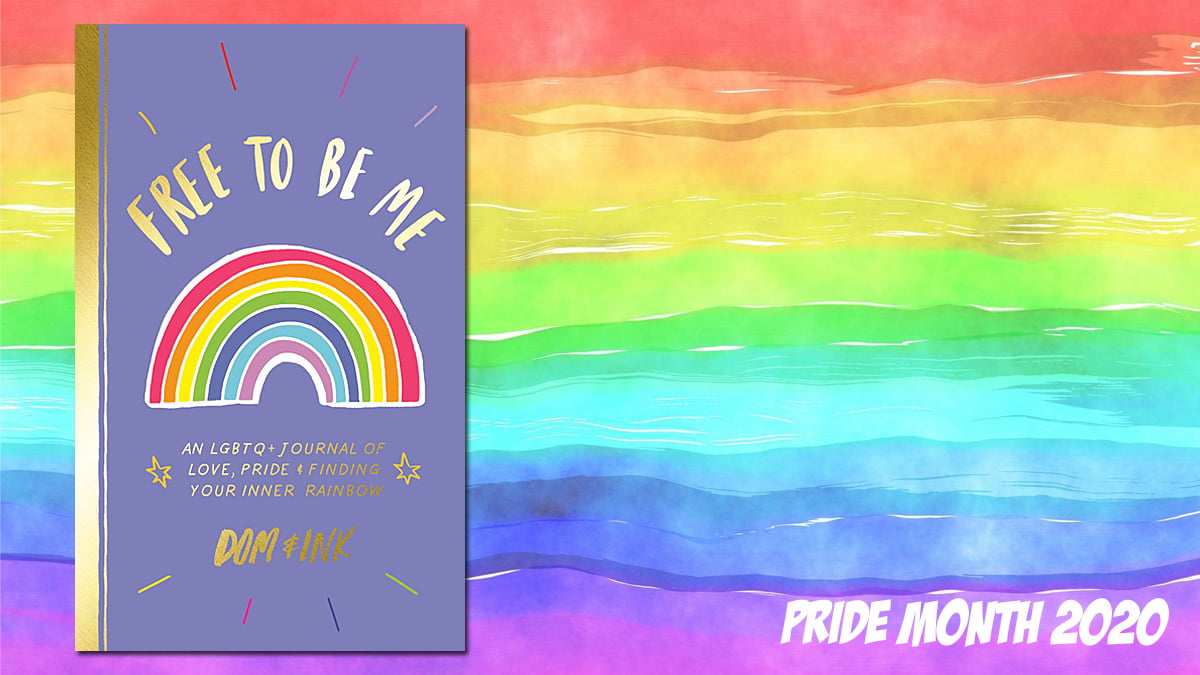When I first took a look at The Period Game, I felt a lot of embarrassment. The center of the game board is a big uterus, and the cards and moves are based around tampons, pads, ovulation, and needing to go to the nurse because you had a leak and ruined your clothing.
That embarrassment is kind of the point.
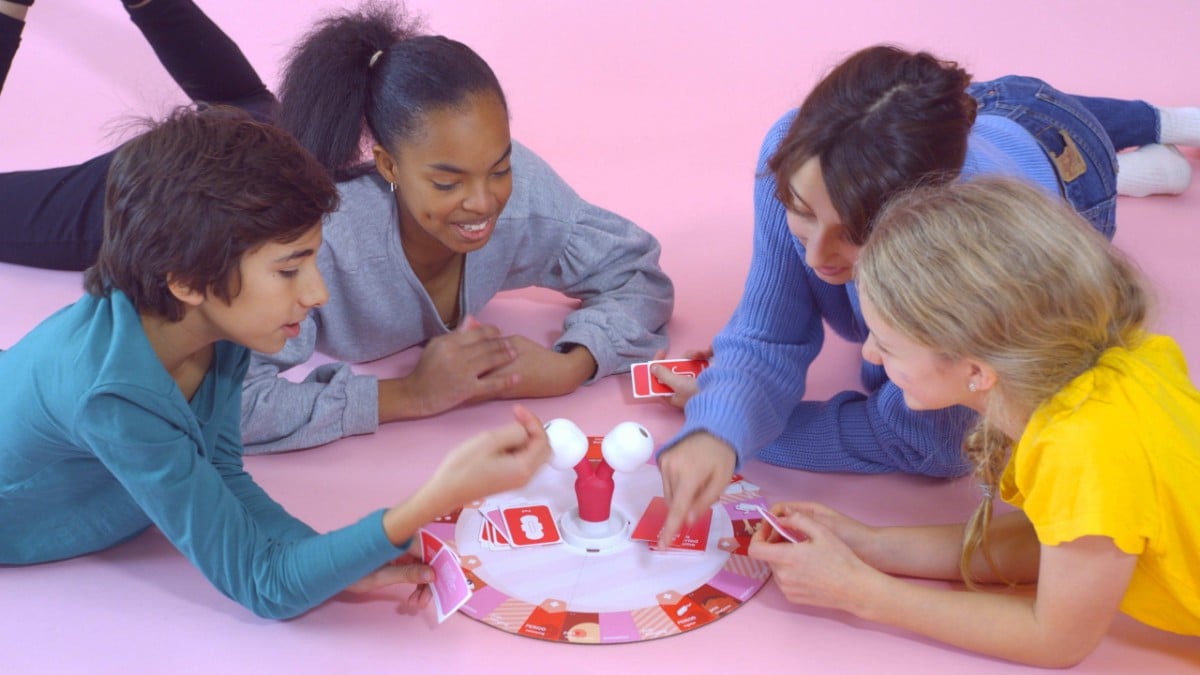
I’m 39 years old, and while my mother gave me the What’s Happening to My Body Book for Girls book when I was 10 or 11, my family itself wasn’t comfortable discussing menstruation. I read the book obsessively, memorizing all of its information and comparing my body to its stages of development, looking for any and every sign that this monthly bleeding was about to start—but at the same time, I was horrified and vaguely disgusted by the entire process.
The goal of The Period Game is to shake us out of that discomfort around periods.
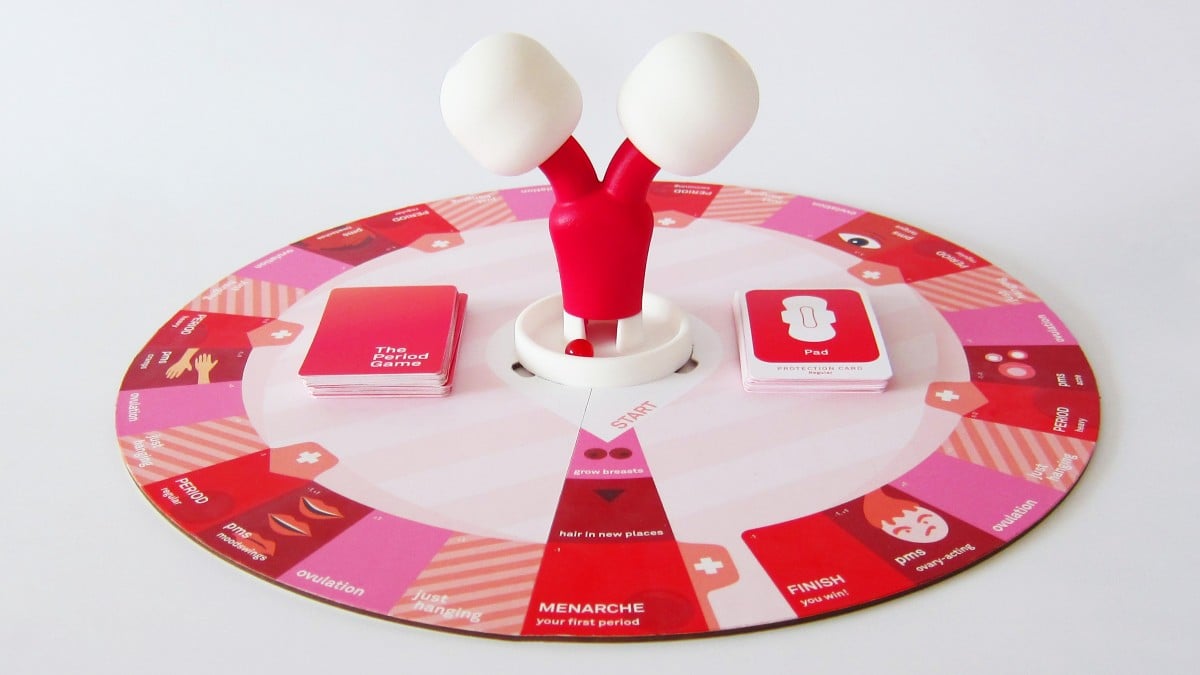
It’s pretty much impossible to play the game without saying words like “period” and “tampon,” making it a lot easier to talk about in real life.
The game centers around the uterus. Literally. There’s a model, stylized uterus in the middle of the board, and to make your move you twist an ovary (and I thought ovulation hurt!). A clear or purple marble is released, telling you what to do next. You might play a protection card (corresponding to a light or heavy flow) or need to use a PMS card to counteract your symptoms. If you get a dreaded purple marble, you leaked, go straight to the nurse and miss a turn. But don’t worry; if you have an extra panties card, you don’t miss that crucial turn.
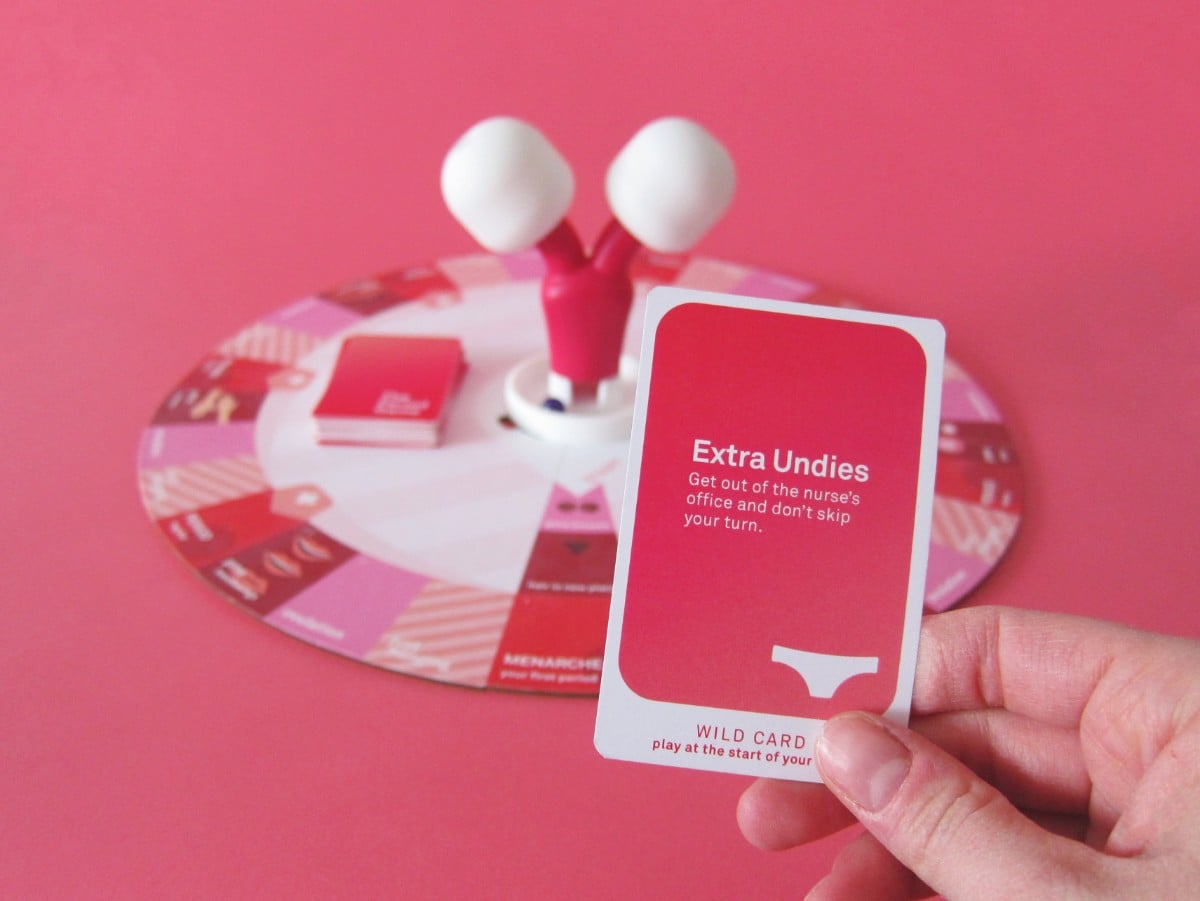
The concept of the game is intriguing. I do think it’s important that we normalize language like period, menstruation, tampons, pads, and ovulation. As a kid, I had an extremely heavy flow, but I didn’t realize it. It wasn’t until I was in my late 30s that I was diagnosed with adenomyosis (the opposite of endometriosis, basically), and had a hysterectomy. If I’d been better able to identify my symptoms and concerns, maybe I could have gotten help more quickly.
I have an 11-year-old daughter who is right in that place where she needs to know about menstruation, but also finds the topic disgusting and shuts down any attempts to discuss it at all. This would be an interesting way to try and familiarize real life experiences around menstruation. I’d especially like to see it take the sting out of leaking, which almost all girls go through at some point. Paired with Chelsea Cain’s new comic, Man-Eaters, I’d love to be able to open that conversational door. I really do think that would make things easier on her as she grows up.
According to experts like psychiatrist Dr. Gail Saltz, the game should have that effect:
[The Period Game] taps into psychological positive reinforcement of menstrual subject matter through essentially cognitive behavioral training of playing a game with ways of winning and scoring points while educating.
I hope this game can do what it wants to do—change the conversation around periods so that we’re all less embarrassed about what’s going on. After all, the majority of people with uteruses have monthly bleeding, and it’s a little ridiculous that we all have to act like it’s not happening, and that it’s commonplace to be mocked with phrases like “What are you, on the rag?” or “You must be PMSing.” And the game gets bonus points with me for including alternative period products, like menstrual cups.
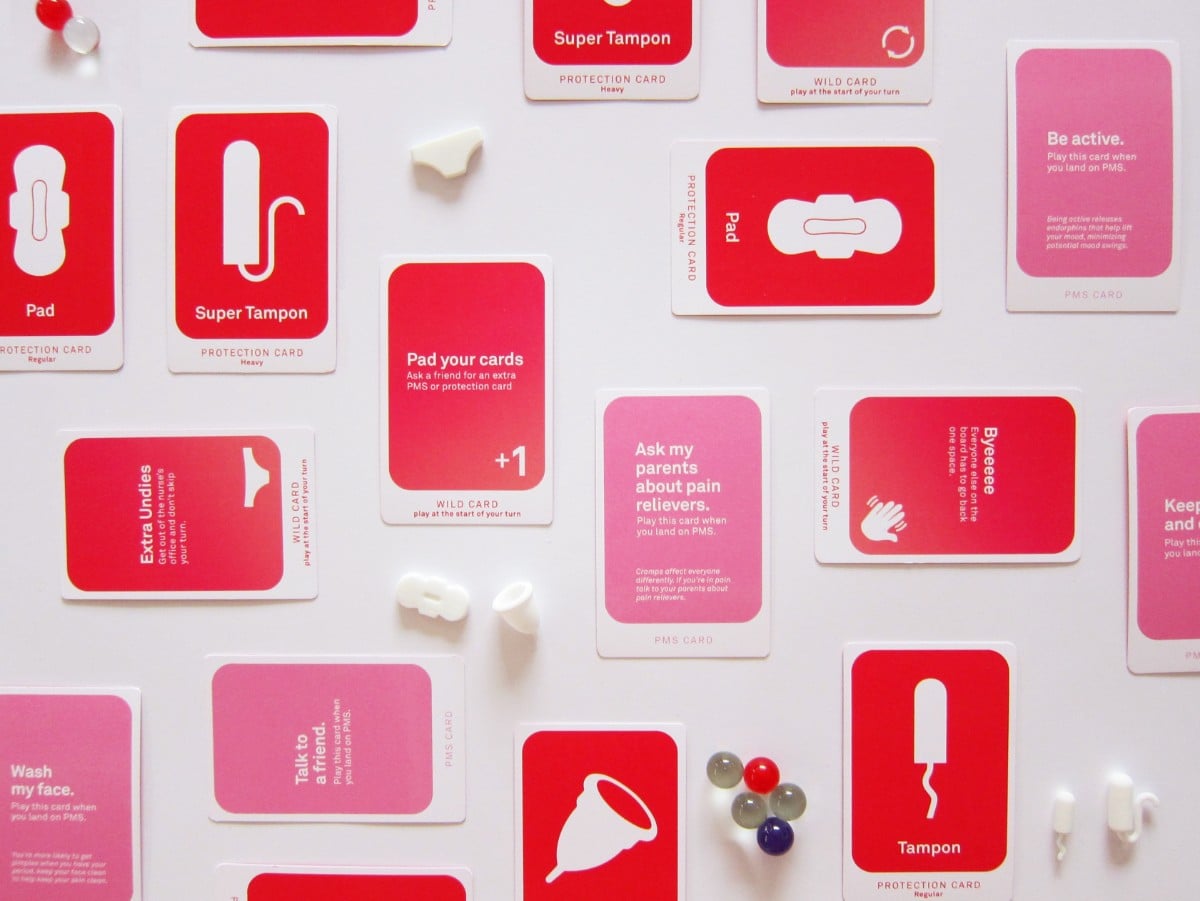
I think it’s important to acknowledge, however, that helping girls be more comfortable with their bodies is only part of the problem; boys need to be taught not to freak out about cycles as well. We also need to educate doctors and push them not to minimize period pain or heavy bleeding, seeing these things not as “typical problems,” but as the health conditions that they are—and health conditions that deserve treatments. It’s also important to remember that trans guys have periods too.
If this game can be even part of changing the conversation, I’m a huge fan already.
Want to have your very own edition of The Period Game? Check out the Kickstarter, launching on February 5th.

